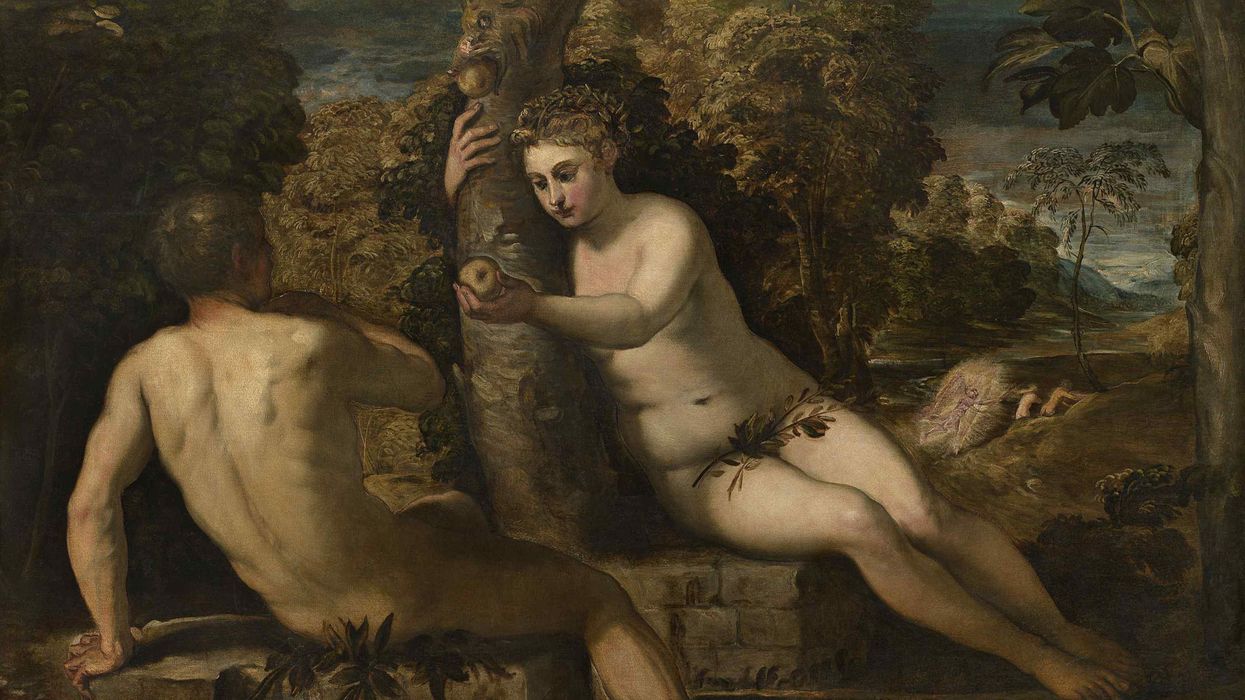
Photo by Fine Art Images/Heritage Images/Getty Images

Christian scientists say that evolutionary science may very well be "making space" for Adam and Eve, Fox News' Tyler O'Neil reported on Monday.
O'Neil reported that scientists, pointing to "genetics breakthroughs," insist that Adam and Eve may not necessarily contradict the theory of evolution.
Christians — many of whom have rejected the theory of evolution as it previously indicated that there was no room for God's first people, Adam and Eve — have long argued about what some see as an impasse between faith and science.
S. Joshua Swamidass, associate professor at St. Louis' Washington University School of Medicine, told Fox that the "societal conflict" of Christianity versus evolution has been "deep and stubborn."
"Now, in a surprise twist, evolutionary science is making space for Adam and Eve," Swamidass explained. "It turns out that the theological questions are about genealogical ancestry, not genetics. In this paradigm shift, we are finding a better way forward, a better story to tell."
In Swamidass' 2019 book, "The Genealogical Adam and Eve: The Surprising Science of Universal Ancestry," the professor argues that genetics and evolutionary theory can work hand in hand with the existence of Adam and Eve.
"Most readers of Genesis understood Adam and Eve to be (1) ancestors of us all, and (2) miraculously created without parents of their own," Swamidass told the outlet. "In contrast, evolution teaches that (3) we share common ancestors with apes, and (4) we arise from a large population, not a single couple. This conflict of fact only seemed solvable by revising foundational Christian theological beliefs, or by rejecting evolution."
"But now, clearing up some big scientific understandings, we know that all four of these things can be true at the same time," he continued. "Even if Adam and Eve lived as recently as just 6,000 years ago, they would be the genealogical ancestors of everyone across the globe by AD 1. They could even have been created de novo, from the dust and a rib. Of course, at the same time, we would also descend from people outside the Garden, others whom God created by a providentially governed process of evolution."
A person inherits 50 percent of DNA from a mother and 50 percent from a father.
"As you go farther back, you have more genealogical ancestors who each contribute less and less to your DNA," O'Neil explained. "While universal genetic ancestors are rare, universal genealogical ancestors are surprisingly common. ... Each individual has four grandparents, eight great-grandparents, and so on, but population size in past generations tends to get smaller, so overlap is inevitable. [Swamidass] argues that by 1 A.D., every person on Earth was descended from Adam and Eve."
In his GAE model — Genealogical Adam and Eve — Swamidass claimed that biological humans, despite the span of time of between the time at which Adam and Eve existed and modern day, may still share a common ancestor with apes as per the theory of evolution, but that God could have "created Adam and Eve from the dust and a rib, without parents, and these two became the ancestors of all humans by 1 A.D."
"Swamidass claims that Genesis appears to require biological humans outside of Adam and Eve's family line because after Cain murders Abel and leaves his parents, he fears that he will be killed, he acquires a wife, and he builds a city," O'Neil added.
Christian philosophy professor Michael Murray, who previously taught at Franklin & Marshall College, recently commented on Swamidass' researches and said that he believes "we have arrived at the point where we can confidently affirm that the basic evolutionary story is not the threat to Christian orthodoxy that we once feared, and not because we had to compromise on orthodoxy."
"My view is that recent findings in genetics and paleontology have shown that our best scientific theories and data do not rule out a historical Adam and Eve," Murray told Fox in a statement, adding that new developments show that "for all we know, there might have been a pair that is the ancestor of all extant humans or extant Homo sapiens."
He added that there previously appeared to be an "emerging consensus among both secular scientists and scientists of faith that the relevant empirical data was flatly inconsistent with an ancestral pair."
However, recent developments show that an "ancestral pair is not flatly ruled out as was previously thought."
Biology professor Nathan Lents, who teaches at John Jay College, told the outlet that such developments have made Adam and Eve "more plausible."
"I would not say that there is any evidence, historical or scientific, in favor of the existence of Adam and Eve, as they are presented in the Bible," Lents told Fox. "However, there have been developments in our understanding of ancestry and genetics that allow for the possibility of universal ancestors of the entire human population in the surprisingly recent past."
Swamidass told the outlet that "in making space for Adam and Eve, secular scientists have an opportunity to offer an olive branch to religious communities."
"I'm encouraged to see that many religious leaders ... have been eager to take the olive branch," he wrote. "For those seeking to advance science in a fractured society, this is very good news indeed."